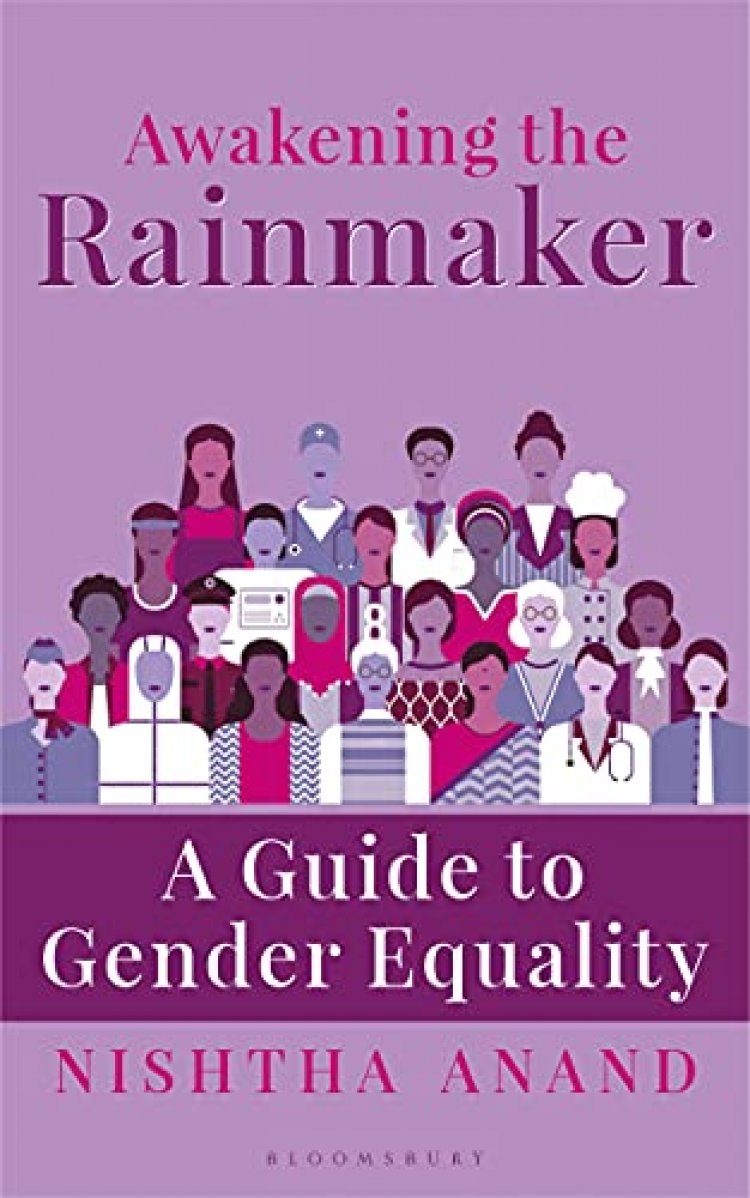Book seeks to find why there are fewer women rainmakers

New Delhi: Investment banker Nishtha Anand wanted to unravel the mystery behind the missing XX chromosome in corporate India and thus her book "Awakening the Rainmaker: A Guide to Gender Equality" was born.
She calls her book a gender equality guide for women, men and organisations in India and focuses on rainmakers, someone who, through their wide network and influence, brings in monetary success and increased brand value for a business.
When Anand started her research she noticed a few facts: less than 3 per cent of chief executive officers in India are women; in 2021, India ranked 140th among 156 nations in The Global Gender Gap Index; and only 31 per cent of women occupy the Chief Human Resources Officer's role in India, a role which is over-represented by women in other countries, such as the US and South Africa.
"Shocked with the state of affairs, I wanted to unravel the mystery behind the missing XX chromosome in corporate India. Hence, I embarked on the journey for this book," she says.
"Awakening the Rainmaker" seeks to offer practical hacks for Indian women to pursue their ambitions uninterrupted by personal milestones - awakening the rainmaker from within.
The author has also tried to include practical advice for organisations for them to enable a gender-neutral working environment.
The book, published by Bloomsbury, includes several examples from Anand's interactions with women from different fields - some of India's most powerful women in business, CEOs, CMOs, entrepreneurs, Padma Shri awardee scientists, leading sports personalities and digital influencers.
"These women had their own mountains to conquer which they did with determination, planning and the right support. I have focused on requisites for a gender-neutral upbringing and women's assertive demeanor. I have also defined corporate policies (including a framework for organisations) needed for a gender-neutral ecosystem," she says.
Anand rues that Covid has contributed to a rise in gender inequality, saying one of the key reasons is the impact of pandemic being higher on certain sectors like healthcare, retail, tourism, hospitality and even informal sectors where representation of women in the workforce is higher.
"Additionally, Indian women also spend more time doing unpaid care work at home than men (unpaid domestic chores, caring for children, elders and the sick etc.). During the pandemic, their share of unpaid care work grew by nearly 30 per cent," Anand told PTI.
She also feels that opportunities for future generations are also potentially at risk in the post-pandemic era.
According to Anand, the government's move to raise the legal age of marriage for girls is a progressive one aimed at empowering women and strengthening the tenets of gender equality.
"However, I do feel that implementation here is not easy. It needs to gain the right social acceptance. For instance, child marriage is still a phenomenon in rural India despite existing laws in place to prohibit the same. We can't just impose laws and assume things will work out. If something transformational is to be done, developing social consensus for the changes is very important," she argues.
Also, legal age is not necessarily the only solution; more awareness, more education, more opportunities can make a difference, she says.
Anand is also of the view that upbringing plays a crucial role in shaping the trajectory of our lives and the first signs of gender differences start showing up at this stage.
"Girls are taught hard work and respect while boys are taught self-confidence to take more risks in life," she says.
"Childhood conditioning is an essential reason why many women shy away from taking bigger risks in furthering their career, thereby missing out on opportunities. This lack of self-confidence also manifests itself as the 'imposter syndrome', where women question their talents and abilities. This needs to be addressed with gender neutral upbringing by parents," she adds.
Though the book has not dealt with the subject of violence related to gender, Anand says the right to safety is a basic right for everyone - across age groups and genders.
"It is saddening to note that violence against women in India during the Covid pandemic was described by the United Nations as a shadow pandemic," she says.
She stresses on the need to educate the younger generation towards gender equality and mutual respect.
"It is also important to call out the stereotypes, talk about consent, women's rights, accountability of each citizen (both men and women) towards building a safe society and a culture of acceptance. By doing so, we will empower the future of our nation with knowledge and a zest towards gender inclusion and equality," she says.















































